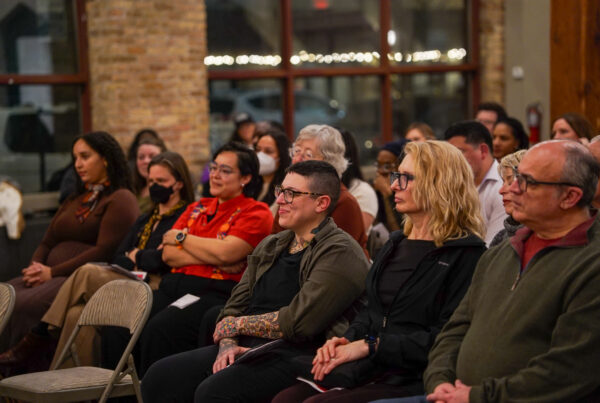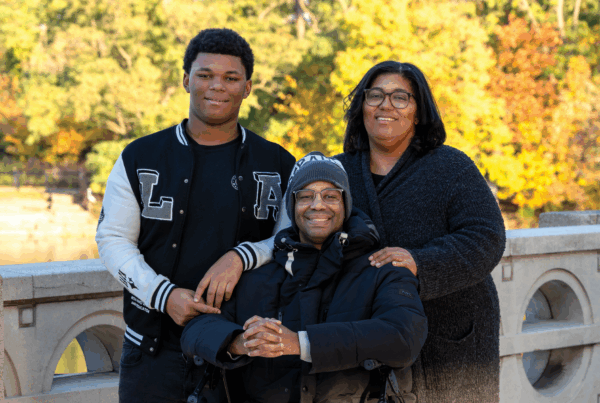Chicago Coalition for the Homeless (CCH) is mindful of the state’s budget constraints and Governor Pritzker’s focus on putting the state in good economic standing. With the cost of housing and other essentials rising, the state has a responsibility to prioritize the needs of the unhoused.

We laud the Governor’s continued commitment to the Home Illinois initiative, which addresses homelessness through a holistic approach, and understand there are several pipeline pathways needed to support people to maintain stable housing. This initiative is helping Illinois make progress in our efforts to end homelessness across the state.
We fully support the state’s intentional focus on addressing Black homelessness. The disproportionate number of Black Illinoisans who face homelessness is one more area where we see the manifestation of systemic racism. As part of our advocacy to address this inequity, CCH will advocate for increases in funding to important, ongoing work, such as funding homeless youth, supportive housing, homelessness prevention and emergency shelters, while also dedicating $5 million in the Illinois State Board of Education budget to support the needs of students experiencing homelessness.
According to the U.S. Department of Housing and Urban Development’s (HUD) 2023 Annual Homeless Assessment Report: Part 1: Point-in-Time Estimates, conducted in January 2023, homelessness increased by 12% from 2022. In Illinois, the Illinois State Board of Education (ISBE) reported 58,498 students experiencing homelessness during the 2022-23 school year, a 22% increase from the year before. As of January 31, 2024, Chicago Public Schools identified 22,777 students experiencing homelessness. This represents a 57% one-year increase and the highest number ever identified at this point in the school year. School districts statewide need funding to provide services and supports to students, especially as American Rescue Plan funds are coming to an end.
In his address, Governor Pritzker shared the story of Jasmine, a pregnant mother of five in Oak Park experiencing homelessness. Jasmine was able to receive the wraparound services her family needed through Housing Forward and is currently stably housed. He is correct in stating, “There are many hundreds of people like Jasmine out there in need of help.” CCH’s grassroots leaders and homeless and housing service providers would go further and say there are thousands of families facing similar predicaments. This is why we continue to advocate for increases in the established line items. As we have seen over the last year, not including funding in their designated line items has caused delays to service providers receiving contracts, which delays funding and being able to provide much-needed services. It means families who could have remained housed experience homelessness, it means families like Jasmine’s are sleeping in unsafe places because shelter beds are unavailable, it means a shelter hoping to hire a new staff person to support youth in their programs kept that position open for an additional six months awaiting the contracting process. Home Illinois is a great initiative, but its goal of eradicating homelessness is undermined when providers are unable to provide services due to administrative delays.
We commend the Governor’s understanding that housing is truly a human right and that a person’s citizenship status should not determine whether they have access to safe and affordable housing. The additional $182 million in funding for migrant services in his budget proposal makes this commitment clear. The Governor and the General Assembly have shown through their actions over the past few years that they want to invest in the needs of those who are too often pushed to the margins. We look forward to working with them this year to enact a 2025 budget that continues to support all Illinoisans.






